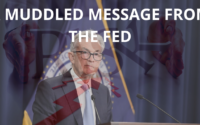BONN, Germany — Treasury Secretary Janet L. Yellen said on Wednesday that Americans should not expect immediate relief from high gas prices but maintained that increases in global supply are eventually likely to provide long-term relief for motorists at the pump.
Yellen warns of global ‘stagflationary’ risk from gas, food prices
“We’re doing what we can to avoid further increases in energy prices … but we also want to make sure” Europe weans itself off dependence on reliance on Russian oil and gas, Yellen said. She added: “These pressures are not likely to abate in the very near future.”
Yellen stressed that she did not expect the U.S. economy to go into recession, arguing that it is well-positioned for economic risks, pointing to fast growth coming out of the coronavirus recession. But she said Europe is likely more “vulnerable,” citing its greater dependence on Russian energy than the United States.
“This is an environment that is filled with risk, both with respect to inflation and potential slowdowns,” Yellen said.
Yellen’s comments come as the cost of gas rose above $4 per gallon in every state in America for the first time. Nationally, the average price of a gallon of gas was $4.52, with much higher costs in some states, such as California. The higher energy prices come on top of a U.S. economy already racked by the highest inflation in roughly four decades, and this summer could bring gas prices up even further with increased demand as consumers hit the road.
Yellen and the finance ministers of the Group of Seven Western industrialized nations are meeting this week in Germany to discuss global economic challenges, as well as potential measures to deepen sanctions on Russia over its invasion of Ukraine. The officials face an extraordinary set of challenges, trying to balance the push to punish Russia with renewed fears of a global slowdown and high inflation across the world.
Yellen said the sanctions are designed to impose maximum pain on Russia while mitigating their impact on the rest of the global economy. She said U.S. officials have always understood it would be impossible to entirely insulate other nations from the impact of the war.
“This is always the core of the conversations we’ve had,” Yellen said.
Energy prices represent one of their most vexing issues, as gas costs have risen since Russia invaded Ukraine in February, disrupting international markets. Europeans have discussed additional measures to deprive Russia of its revenue from oil and gas sales — the United States has already banned energy imports from Russia — but any such move could push prices up even further. Yellen told reporters on Tuesday that U.S. and European officials will be discussing measures such as a European price cap on Russian energy purchases this week but that no decisions have been made.
The Biden administration has taken several steps intended to reduce gas prices, such as releasing a huge share of the nation’s oil reserves and pressing oil companies to step up production. The White House also considered, but has not embraced, measures such as a rebate for motorists and a federal gas tax holiday.
Bob McNally, president of Rapidan Energy Group, an energy consulting firm, said consumer prices could approach $5 per gallon this summer and that prices will keep going up as long as consumption continues to rise, and “so far there is little sign of a meaningful demand retrenchment.”
“Consumer prices for both gasoline and diesel have soared to record high levels in the U.S. and show no signs of abating,” McNally said. “While not every recession was triggered by spiking oil prices, spiking oil prices always cause or contribute to recession.”
Yellen also said the United States is likely to end an exemption to the sanctions that allows Russia to make interest payments on its debts, which could raise the odds of a Russian default that would ripple through international markets.
She also pointed to her push for international aid to alleviate new hunger challenges sparked by the war. Yellen directed international financial institutions to come up with a plan to address acute food shortages.
“This has been important progress, but we need to double down on our efforts to make sure people around the world can feed their families,” Yellen said.
[ad_2]
Source link


